




 |
   |
 |
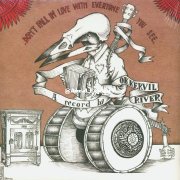 |
Don't Fall in Love with Everyone You See (2002, 46.09) ***½/TRedKansas City Lady Liberty My Bad Days Westfall Happy Hearts Dead Dog Song Listening to Otis Redding at Home During Christmas Okkervil River Song |
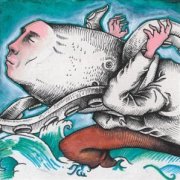 |
Down the River of Golden Dreams (2003, 45.57) ***½/T½ |
|
| Down the River of Golden Dreams It Ends With a Fall For the Enemy Blanket and Crib The War Criminal Rises and Speaks The Velocity of Saul at the Time of His Conversion Dead Faces Maine Island Lovers |
Song About a Star Yellow Seas Too Far to Reach |
|
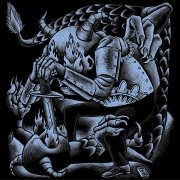 |
Black Sheep Boy Appendix (2005, 24.41) ***½/TTMissing ChildrenNo Key, No Plan A Garden Black Sheep Boy #4 Another Radio Song A Forest Last Love Song for Now |
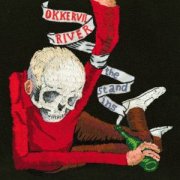 |
The Stand ins (2008, 40.17) ***/½ |
|
| Stand ins, One Lost Coastlines Singer Songwriter Starry Stairs Blue Tulip Stand ins, Two Pop Lie On Tour With Zykos |
Calling and Not Calling My Ex Stand ins, Three Bruce Wayne Campbell Interviewed on the Roof of the Chelsea Hotel, 1979 |
|
Current availability:
Mellotrons used:
Okkervil River are a newish Americana band, originating in New England but based in Austin, Texas. They seem to have had multiple lineup changes in the decade they've been together, leaving just one original member, chief songwriter etc. Will Sheff. Where they win out over the likes of Ryan Adams is in their authenticity and their wind-blasted sound, all picked banjos and ghostly keyboards and strings. Something that might put some listeners off is Sheff's voice, which bears an uncanny resemblance to a slightly less hysterical Waterboys mainman Mike Scott at times, although he knows how to tone it down when he has to.
Don't Fall in Love with Everyone You See is their first full album, defining their sound nicely, Kansas City's pedal steel contrasting nicely with the wonky brass of Lady Liberty and Westfall's mandolin. The material covers a wide variety of country-related styles sympathetically and without dipping into the Nashville schmaltz barrel at any point. Just one Mellotron track (from Sheff), with some wonderfully out-of-tune flutes on opener Red that almost sound like recorders. Down the River of Golden Dreams is, somehow, slightly less appealing than its predecessor, though not enough to dock it any stars. One instrumental feature of note is Sheff's increasing use of the Wurlitzer, with several tracks featuring its percussive tones. New keyboard player Jonathan Meiburg adds Mellotron flutes to It Ends With A Fall and the wonderfully-titled The Velocity Of Saul At The Time Of His Conversion, although with credited cello and viola, I suspect all string parts are real. Black Sheep Boy Appendix is a follow-up EP to the Mellotron-free Black Sheep Boy, showcasing a broadening of the band's sound, the almost-ambient Missing Children and the rocky No Key, No Plan standing out. Mellotron from Alice Spencer this time round, with flutes on No Key, No Plan and, for the first definite time, strings on Black Sheep Boy #4, although other string parts sound real.
2008's The Stand ins is the second part of The Stage Names (see: Samples etc.), originally conceived as a double; the two sleeves form a larger picture when placed one above the other. Sadly, the same problem applies to this album as to its 'first part', in that it's, well, less interesting than their earlier work. Some individuality seems to have been lost and the songs are less quirky, but maybe that's just my personal prejudices coming into play. Saying that, Bruce Wayne Campbell Interviewed On The Roof Of The Chelsea Hotel, 1979, is inspired by failed US glamster Jobriath (BWC being his real name), who died in 1983, decades before any possibility of musical rehabilitation. Three Mellotron players this time, Scott Brackett, Justin Sherburn and Brian Beattie, presumably playing Echo Park Studios' M400 with not-that-Mellotronic-sounding strings on Starry Stairs, Blue Tulip and (uncredited) Calling And Not Calling My Ex, just about distinct from the real string section used elsewhere.
See: Samples etc. | Roky Erickson
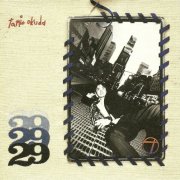 |
29 (1995, 48.55) ***/T |
|
| 674 Rūto 2 Hanemūn Musuko Kore wa Utada On'na ni Naritai Aisuruhito Yo 30 Years Old |
Beef Ainotameni Ningen Okuda Tamio ai no Tēma |
|
 |
E (2002, 62.21) ***/T |
||
| Oreha Shitteiruze Manwojishite Hanani Naru Hananinaru (Tasogaren No Theme) E Mon Amour Hana to Flower Hana to Flower Sansei |
Gomen Rider Senshuu No Getsuyoubi Minna Genki Yakyuudeiuto Aishuuno Kinyoubi Raishuuno Nichiyoubi Ieni Kaereba Custom (Japan version) |
Hehehei The Standard Dousuru |
|
Current availability:
Mellotrons used:
When Japanese singer-songwriter Tamio Okuda isn't recording his own material, he's been known to write for other artists, not least Puffy. His debut, 1995's 29 (although he followed it up with 30, he seems to have refrained from any further age-related album titles), is a perfectly listenable, stylistically varied Japanese-language pop/rock effort, highlights including Rūto 2, displaying Okuda's understanding of rock'n'roll tropes, not least by quoting from Johnny Kidd's Please Don't Touch at one point and stomping closer Okuda Tamio Ai No Tēma. Parliament/Funkadelic's Bernie Worrell is credited with Mellotron on three tracks, but two of them (Kore Wa Utada and Ningen) are complete duds, leaving just the (real-sounding) string part running through Musuko (Son).
I don't know whether Okuda used a Mellotron on any of his intervening releases (sorry, I simply can't be arsed to play them all to find out), but it appears again on 2002's E, a not dissimilar album to 29, in many ways, although it breaks up the 'regular' material with a series of brief, frequently instrumental vignettes, not least the under-a-minute new wave/synthpop Senshuu No Getsuyoubi. Best tracks? The bluesy, propulsive Manwojishite features some very Page-esque slide work, Gomen Rider's worth hearing and spot the Europe quote (The Final Countdown, obviously) on closer Dousuru. An unknown musician (Okuda himself?) plays Mellotron flutes on two tracks, with a surprisingly speedy solo, complete with key-click, on Yakyuudeiuto and a chordal part on The Standard, plus possible background strings.
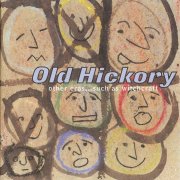 |
Other Eras...Such as Witchcraft (1997, 46.25) ***/T |
|
| Drain the Lake Three Rings T.I.O.N. Cross the State Selopan Flames Grow Tall Poblecito Spur Eye |
Pontiac Settle Down Diamonds or Coffeecake Broken Science Fair |
|
Current availability:
Chamberlin used:
Old Hickory are a classic Mellotronic case of 'if I'm not told, I'll never know'; no tape-replay credit in the CD booklet, no (previous) online references... Actually, I was not only told by one of the band, but sent a copy for review, despite their non-existence for over a decade, which is above and beyond the call of duty. In the words of contemporaneous reviewers, every song on 1997's Other Eras...Such as Witchcraft sounds different to every other, or in the band's words, 'Flaming Lips meets Pavement with a bit of Nirvana', if that helps at all. Going by their name, they sound like they should've played prime Americana, but Pontiac's probably the only track that even partially fits that description. Common threads running through the album include songs with melodic intros that switch into a kind of post-grunge after about thirty seconds (Three Rings, Cross The State, Flames Grow Tall), occasional Neil Young-influenced guitar parts (notably on Broken) and (presumably) Jason Coile's overly 'rock'n'roll' vocals, which probably don't help to describe the music either.
Michael Marqueson played producer Sylvia Massy's Chamberlin (M1?), with flutes and cellos on Selopan, cellos on Flames Grow Tall and strings on Pontiac, although I wouldn't call it a defining feature of the album's sound. As you can see, I've found it rather difficult to convey the band's sound in cold print, but if the influences to which they admit appeal, you stand a good chance of liking this, too. Not much Chamby, but nice to hear it used on a non-mainstream pop album, for once. Incidentally, thanks to Scott Matz for going to so much trouble to provide this for review.
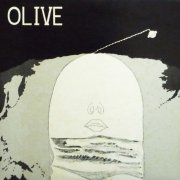 |
First Album (1976, 56.12) ***/½PierrotDensetsu Kuro no Miwaku Toki Wa Kaze No Youni Masoukyoku Olive Isho Shinkirou |
Current availability:
Mellotron used:
Unsurprisingly, I can't tell you much about Olive, other than that they were an early Japanese progressive outfit, in a country whose main scene was in the '80s. 1976's First Album freely mixes mellow post-psych stuff with heavier material, occasionally spilling over into near-symphonic territory, although, sadly, the bulk of the record passes by without really impinging itself on the listener. Even when they do something good, like the first half of Kuro No Miwaku, they slip into a rather pointless blues groove halfway through, while the female vocals are definitely an acquired taste.
The album opens with Ken Miyazawa's solo Mellotron cello, with distant chordal strings on Densetsu, although that would appear to be our lot. This isn't as bad as I'm making it sound, but it's no classic.
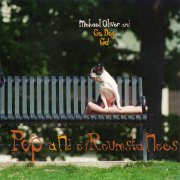 |
Pop & Circumstances (1999, 45.20) ***/T½ |
|
| Anyone But You Tell Me What You Want There Goes My Heart Again It's Alright All You Wanted Wailing Wall Father's Day in NYC I've Got a Secret |
What Took You So Long? Sometimes Sunshine Vamp and Fade |
|
Current availability:
Mellotron used:
Buffalo, NY's Michael Oliver and his Dr. Seuss-referencing Go, Dog, Go! were a middling powerpop outfit, whose second album, 1999's Pop & Circumstances (ho ho) is decent enough, if a little unexciting. Highlights include the jangly Wailing Wall and What Took You So Long?, although opener Anyone But You is a dead ringer for Alice Cooper's Be My Lover and the overlong Americana of It's Alright begins to drag after it enters its fifth minute.
Oliver plays Mellotron on two tracks; a little 'Net research tells me that he played 'the two Kens' M400s; New Englanders Ken Leonard's and Ken Merbler's, as mentioned on the former's site. Anyway, we get nicely upfront flutes, cellos and strings on All You Wanted and flutes and wobbly strings on What Took You So Long?, the parts on the latter reminding me of Aimee Mann, which is no bad thing, although the flutes on closer Vamp And Fade sound somewhat unMellotronic. To my knowledge, Oliver has continued to make music, although no longer with Go, Dog, Go!
Omega (Hungary) see: |
 |
 |
download (?) (2014) ***/T½ The Loveland |
Current availability:
Mellotron used:
Austin, TX's One-Eyed Doll are the duo of Kimberly Freeman and Jason Rufuss "Junior" Sewell, who, going by the couple of songs I've heard, play a kind of faux-cutesy female-fronted indie/pop/punk thing. Saying that, 2014's The Loveland has more of a surf vibe about it, although Freeman's vocals, vaguely akin to Philomena Muinzer of long-lost '80s Ulster/US oddballs Cruella de Ville, aren't the easiest listen, no doubt as she'd like it.
Given that this was recorded at Sylvia Massy's studio, Sewell plays her Mellotron on the track, with a skronky string part, nice to hear, if slightly inessential. Given the track's probable non-physical media past, it, along with several similar, was added to 2018's Holier, an expanded reissue of 2006's Hole.
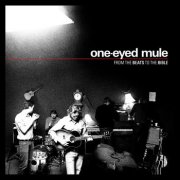 |
From the Beats to the Bible (2008, 34.27) ***/½ |
|
| Annabelle Lee Where You Don't Belong The Map Song I Miss Hanging With You Miss Jane Sad Little Lovesong Out of the Game Sweet Lovin' |
Sad Little Lovers Bad Habits Ain't Enough to Save You From the Beats to the Bible |
|
Current availability:
Mellotron used:
Discogs describes One-Eyed Mule as 'indie garage folk rock', which pretty much sums up their second album, 2008's From the Beats to the Bible. Their use of archaic instrumentation (harmoniums, bowed saws etc.) brings The Band to mind, although their songwriting has little in common with Bob's old muckers, sounding more like a weird fusion of current indie, pre-war blues and Ennio Morricone's Spaghetti Western soundtracks. The album's real strength lies in its eclecticism, though, possibly at its best on The Map Song, Miss Jane and The Band-like Sad Little Lovesong.
Uffe Ipsen plays Mellotron (presumably Feedback Recording's M400), with a haunting flute line on I Miss Hanging With You, which doesn't even garner a full 'T'. Decent enough, then, but not a band likely to break out from their home market.
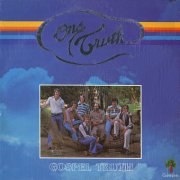 |
Gospel Truth (1977, 43.08) *½/T |
|
| Gospel Truth God-Man Worship the King Born Again Way Up High Once Not So Long Ago Double Minded Man One Day at a Time |
Reprise (Once Not So Long Ago) Prodigal Clay |
|
Current availability:
Chamberlin used:
One Truth were a '70s US CCM outfit with a difference: instead of the standard soft-rock-to-MOR flavourings, this bunch played spot-on soul-lite, musically indistinguishable (at least to my ears) from many similar, secular bands of the era. Does that make them any better than the competition? Marginally, but it's akin to the difference in smell between two turds, so don't go thinking this might actually be any good. At their most convincing when they get (ever so slightly) funky, their attempts at 'rock' are pretty laughable, but the likes of opener Gospel Truth and the balladic Double Minded Man remind me of the more acceptable R'n'B to be heard at the time. Lyrically, of course, it's the usual combo of bullying, passive-aggressive 'join us or burn forever' bullshit and piss-yourself-laughing nonsense such as "We're going to be together for that meeting in the sky/Christians don't ever have to say goodbye" (Way Up High), which, essentially, redefines the word 'banal', at least in my book (which isn't, of course 'The Book').
Unusually for such efforts, this features track-by-track credits, letting us know that keys man George Smitty Price plays Chamberlin on closer Prodigal Clay, with massed, multitracked voices, sounding more like a Mellotron, as their weird, solo vibrato is subsumed into a full choir effect. Does anyone really need to hear this? Of course not; there's vastly better genuine soul out there, much of it religiously inspired, but without this crew's sledgehammer approach, while only sad God-botherers are going to gain anything from the ludicrous lyrics. Is it even funny? Way Up High made me LOL, as they say, but the rest of it's the usual teeth-gritting stuff. Another Mark Medley contribution, folks. I'll publish his address for you one day.
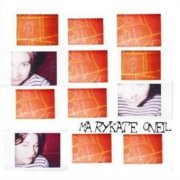 |
Marykate O'Neil (2002, 41.02) **½/T |
|
| Hudson Mundane Dream Getting Out of Bed U-Haul Radio Shack Another Saturday Newsday Still Waiting |
Sunny Day Stop Bedsore Brain Prime Time Secret Crush 8th & 14th |
|
Current availability:
Chamberlin used:
Wikipedia describe Marykate O'Neil as an 'indiepop singer-songwriter', which sounds about right, going by the contents of her eponymous debut. Much of the album ploughs the same old indie furrow, wafting along on a cloud of rather twee vocals and lightweight instrumentation, better tracks including the jangly Another Saturday, Still Waiting and the propulsive, '60s-esque Prime Time.
Brad Jones (Marshall Crenshaw, Over the Rhine) plays Chamberlin, those distinctive strings murmuring in the background on U-Haul, although other possible use probably isn't. There's one more alleged Marykate tape-replay record, 2006's 1-800 Bankrupt, which you'll find in Samples etc.
See: Samples etc.
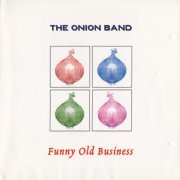 |
Funny Old Business (1997, 55.58) ***½/T½ |
|
| High Germany Dirty Old Town The Green Fields of France Dennis Murphy's/John Ryan's The Curragh of Kildare The Oak and the Ash Mist Covered Mountain/Out on the Ocean Change at Thorpe-le-Soken |
The Ballad of Cursed Anna The Old Armchair The Rights of Man The Warlike Lads of Russia King of the Swingers Down Where the Drunkards Roll The Blackbird and the Thrush |
|
Current availability:
Mellotron used:
The (Celebrated) Onion Band have been around since the mid-'80s, playing folk gigs in Essex and Suffolk pubs, seemingly perfectly happy with staying at that level, as far as I can work out. Funny Old Business is their fifth and, to date, latest release, though without writing credits, I'm not sure how many (if any) of the songs are band originals. Dirty Old Town is Euan McColl, Down Where The Drunkards Roll is Richard Thompson, King Of The Swingers is from The Jungle Book, while several of the others are by that most prolific of songsmiths, 'Trad. Arr.', but I really wouldn't like to say for many of them. Will you like this album? Do you like English folk? Then you'll like it. Apart from the occasional keyboard interjection, it's endearingly authentic, right down to Pug Rayner's 'oo-arrr' vocals.
Speaking of keyboards, bizarrely, the band own an M400 with eight tape frames and have used it on two previous albums, 1988's Now There's a Thing...! and '90's Entirely Made of Wood! I'm told that Funny Old Business's producer, John Robert Peel, was rather unkeen on the Mellotron, for his own, twisted reasons and as a result it's not only used sparingly, but buried so far down in the mix that the first point at which I realised there was some on High Germany was the faint strings on the final chord. Change At Thorpe-Le-Soken (which sounds like their own composition) opens with some Mellotron sound FX, which leaves the quite audible strings and flutes of The Ballad Of Cursed Anna and some more faint strings on the jig, The Rights Of Man.
I hear dark rumours that the band have a stash of tapes made over the years, many featuring their Mellotron rather prominently. So, where are they, chaps? For that matter, it's now six years since you've released anything, according to your own site. Activity, please! Anyway, as I said above, if you like English folk of the more raucous variety, you'll probably like this lot, although it's pretty low on Mellotronic input.
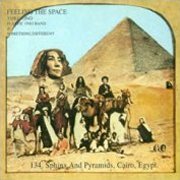 |
Feeling the Space (1973, 45.28) ***/T½ |
|
| Growing Pain Yellow Girl (Stand By for Life) Coffin Car Woman of Salem Run, Run, Run If Only A Thousand Times Yes Straight Talk |
Angry Young Woman She Hits Back Women Power Men, Men, Men |
|
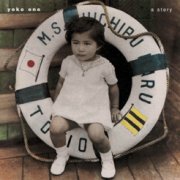 |
A Story (1997, recorded 1974, 37.21) ***/T½ |
|
| A Story Loneliness Will You Touch Me Dogtown Tomorrow May Never Come Yes, I'm a Witch She Gets Down on Her Knees It Happened |
Winter Friend Heartburn Stew Hard Times Are Over |
|
Current availability:
Mellotrons used:
Yoko Ono needs no introduction, I hope; Feeling the Space was her fourth solo album proper (i.e. without John), a smack in the face for those who claim that she can neither write nor sing, as she tackles both disciplines with aplomb. It's an album of radical feminism, in an age when lower wages for women, constant sexist remarks and rape within marriage were actually considered acceptable, as against now, when they're slightly more frowned-upon by some people. Angry Young Woman and Women Power are the album's apotheoses, referencing abortion and other fundamental feminist issues in a way few (any?) other artists did at the time. Musically, it's all pretty much as you'd expect; middling early '70s rock with few outstanding features, although closer Men, Men, Men is an amusing jazz pastiche, featuring John's ironic two-word cameo as the album's last moment. John's keyboard player, Ken(ny) Ascher, plays Mellotron, with strings and cellos on opener Growing Pain (although the flute's real) and Coffin Car, although that would seem to be your lot. Incidentally, I believe it was during the recording of this album that the (hired-in?) M400 was unofficially borrowed by Martin Mull's keyboard player, Keith Spring, who used it to surprising effect on one track on Mull's otherwise below-par Normal.
A Story was recorded in 1974, but not released, for reasons unknown, possibly connected with John's 'legendary' 'lost weekend', a.k.a. how famous men leave their wives for younger women. Much of its material, re-recorded, appeared on later albums, while the original recordings first appeared on 1992's Onobox, the complete album only gaining a full release in 1997, complete with three 'bonuses', although there doesn't appear to be a version of the album available without them. To be honest, it's not dissimilar to Feeling the Space in the 'middling rock' stakes, probably at its best on She Gets Down On Her Knees; while not a great track, given the circumstances, how could that Georgian guitar line on Hard Times Are Over not be deliberate? Ascher on Mellotron again, with pseudo-orchestral string and flute parts on the opening title track and background flutes and strings on Tomorrow May Never Come. Two albums that are probably more 'interesting' than 'must-haves', then, although they're a very long way from Yoko's primal scream stuff of a few years earlier.
See: John Lennon
Opeth (Sweden) see: |
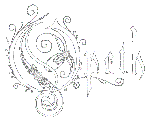 |
 |
Night Blooms (2009, 47.43) ***½/TTHeavenmanBetter Days Ahead Skinnydip By This River Three Sleepers Honeybee Beach House Flicker Girl The Last Rose of Summer |
 |
Ardor (2013, 51.20) ***½/T½ |
|
| Kissing Moon When We Dream Silence Instead Northern Rains Revenant White Wolf The Waiting Ground |
Then Came the Last Days of May Mariner, Come in |
|
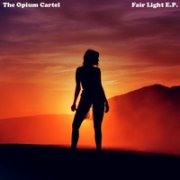 |
Fair Light E.P. (2014, 15.04) ***/T½Clear DaysFair Light (demo) Modular Love When We Dream (single mix) |
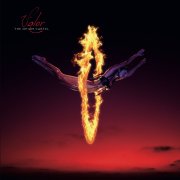 |
Valor (2020, 44.40) ***/TIn the StreetsSlow Run A Question of Re-Entry Nightwings Fairground Sunday Under Thunder The Curfew Bell A Maelstrom of Stars What's it Gonna Be |
Current availability:
Mellotrons used:
The Opium Cartel are effectively a White Willow side-project, led by mainman Jacob Holm-Lupo, more in the indie/wyrd folk crossover field than his main band's progressive area. Their 2009 debut, Night Blooms, is a fascinating, if slightly inconsistent album, male and female vocals on various tracks, the latter probably working better overall. While most of the material sits most comfortably within the above description, the eight-minute Beach House is a jammed-out psych/prog classic that could have lasted much longer without outstaying its welcome, while opener Heavenman and closer The Last Rose Of Summer are probably the most successful takes on the band's main style.
The album is practically a Scandinavian Mellotron Gods sampler (excuse the phrase), with not only Holm-Lupo, but current White Willow, Wobbler and others keys man Lars Fredrik Frøislie and celebrated Änglagård/AK-Momo/Pineforest Crunch etc. etc. dude Mattias Olsson all on various Mellotrons in various studios across the region. While it's impossible to say who actually plays what, opener Heavenman is thick with tape-replay, with a rather stark cello line morphing into flute chords and back again, while Three Sleepers sounds like Mellotron cellos, despite the presence of a real one on the album, with possible faint strings in there somewhere, although they're more likely to be Mattias' Optigan or Orchestron. More of those unidentified strings on Beach House, along with some background choir (Orchestron again, or maybe Roland Vocoder?) Definite Mellotron flutes and strings on Flicker Girl, although it's more than possible that various odd sounds have been inserted here and there, flying under my Mellotron radar.
Four years on, the project follow up with 2013's Ardor, highlights including the haunting Silence Instead, White Wolf, tense with pent-up energy, the swooning The Waiting Ground, lengthy psychedelic closer Mariner, Come In (the closest either of these albums get to 'prog') and an inspired version of The Blue Öyster Cult's desert-blasted tale of a drug deal gone tragically wrong, Then Came The Last Days Of May, even more haunting than the original, if that's possible. An obvious reference point this time round is No-Man; hardly surprising, as vocalist Tim Bowness guests on one track, while live lineup member Stephen Bennett (Henry Fool) plays a wide range of mostly vintage keyboards. Mellotronically speaking, I really can't tell whether we're hearing choirs on opener Kissing Moon and Mariner, Come In, or whether they emanate from something else, but we get a couple of definite sightings, with occasional strings from Mattias Olsson on Revenant and more upfront ones, plus flutes on The Waiting Ground, presumably Bennett's credited Novatron, although Frøislie sticks to synths and Rhodes piano.
2014's Fair Light E.P. appears to be a free download, which is generous of the band. As a result, it's hard to tell whether this is the intended track order, or Soundcloud simply lists them alphabetically, as the sequencing seems somewhat eccentric. Anyway, their cover of Yes' Clear Day (from Time & a Word, in case you're as bemused as me) is nice, if inessential, ditto the Fair Light demo (is that actually a Fairlight on there?), leaving the synth-stuffed Modular Love as the best thing here, also the only Mellotron track, with a skronky string line possibly played by Mr. Olsson. 2020's Valor takes a violent left-turn into '80s territory; not so much synthpop, more mainstream '80s pop, never a thing to gladden Planet Mellotron's heart, to be brutally honest. Holm-Lupo makes a good go of it, mind, with interesting synth work on A Question Of Re-Entry, while the upbeat Under Thunder works well, other highlights including Fairground Sunday, The Curfew Bell and A Maelstrom Of Stars. Holm-Lupo apparently replaced some of his initial Mellotron work with Oberheim strings, leaving background Mellotron strings on Fairground Sunday and upfront flutes on A Maelstrom Of Stars.
See: White Willow | Änglagård | Wobbler | Tim Bowness
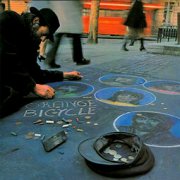 |
Orange Bicycle (1970, 38.59) ***/T |
|
| Lady Samantha Country Comforts The Sweet Thing is Make it Rain Say You Don't Mind Hallelujah Moon Jelly on the Bread Take Me to the Pilot |
Come Tomorrow Morning Back Tonight I'll Be Staying Here With You |
|
Current availability:
Mellotron used:
Orange Bicycle included studio whizz Peter "Wil(son) Malone" Wilson in their lineup, who went on to a storied career as producer and/or arranger for the likes of Black Sabbath. They backed a huge number of artists, not least Paul & Barry Ryan, apparently appearing on over a hundred BBC sessions during their four-year career. Their lone LP, 1970's Orange Bicycle, was considered dated at the time, although the years have been slightly kinder to it. It's a thoroughly mixed bag, to be honest, veering between the rocky psychedelia of opener Lady Samantha, the vaguely hymnal Make It Rain and the wonderful, harpsichord-driven Hallelujah Moon to the soulful The Sweet Thing Is, the blues-rock of Take Me To The Pilot and the tiresome, slide-blues-by-numbers of Jelly On The Bread. Throw everything at the wall and see what sticks?
Malone plays (presumably) Morgan Studios' MkII, with background strings and, oddly an upfront organ solo, quite clearly emanating from the Mellotron on Come Tomorrow Morning. As far as I can tell, they never used a Mellotron again (or even before), probably due to their studio availability, or lack of. I doubt whether they went looking for this one, to be honest; I expect they used it simply because it was there.
See: Bobak Jons Malone
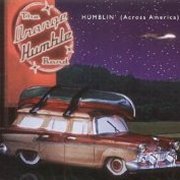 |
Humblin' Across America (2001, 52.40) ***½/TT |
|
| Vineyard Blues What's Your Crime? On Our Way Back Home Any Way You Want it One Hour's Lonely Play Better Just Fake it Listen Up! Annie Run Run Run |
The Ballad of Gospel Sam Can You Imagine Freewheelin' Skyway Believin' Crescent City Ball Park Theme The Way She Moves Come Try This |
|
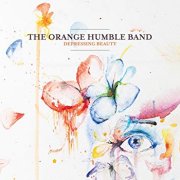 |
Depressing Beauty (2015, 59.56) ***/½ |
|
| You Close Your Eyes The Girl Without a Name Conversations With Myself Sowannadoit Ain't Tougher Than Me Our Beautiful Selves If That's What You Want Get Straight Down |
Once My Precious You Oughta Feel Ashamed No One Cares About Me Emma Amanda Upon Cindy's Will With the Universe in My Hand Something Goin' on |
|
Current availability:
Chamberlin/Mellotron used:
The Orange Humble Band are a 'powerpop supergroup', at least on their second album, 2001's Humblin' Across America. Aussie band leader Darryl Mather played with the Lime Spiders, Ken Stringfellow is chiefly known as top Posie, while guitar/keys man Mitch Easter, despite having played with many bands, is best known for his production work with R.E.M. Not to be outdone, Big Star drummer Jody Stephens was a band member, while Big Star's sometime producer (and Mellotron player), Jim Dickinson, plays piano on one track. Does this sound like an amalgam of The Posies, Big Star and Jellyfish? Of course it does; do you have a problem with that? The album is split into three 'mini-suites', tracks 1-5 subtitled Humblin' (Across America), 6-9, A Southern American Small Music Revue and the remainder End Revue. The three parts all have different musical emphases; music biz legend Spooner Oldham plays various keyboards on most of the album, so it's hardly surprising that the second 'suite' takes a more countryish turn than the other two, although I'm still not sure what it's all about. As far as the album's tape-replay goes, Easter plays Chamberlin on several tracks, with a beautifully arranged string part on opener Vineyard Blues and a much shorter one on One Hour's Lonely Play. Almost inaudible strings on Can You Imagine, a sustained string note (studio trickery, I suspect) on the short instrumental Crescent City Ball Park Theme and a 'proper' string part in closer Come Try This.
Fourteen years on (!), Mather decides to record the third OHB album, the aptly-named Depressing Beauty. Because? Because, although some of its songs (of which there are rather too many) could be described as 'beautiful', the album as a whole is a little depressing, chiefly due to its shift towards the pop/rock mainstream. Yes, a handful of songs could still be described as 'powerpop' (opener You Close Your Eyes, Our Beautiful Selves, Once My Precious You), but far too many of them drift along in a lacklustre kind of way, unable to summon up the joie de vivre of the album's distant predecessor. Perhaps Mather's decided to leave all that stuff behind. A pity. Rick Steff plays Mellotron, presumably Ardent Studios' M400. Anyway, real strings on several tracks, leaving just the strings on Upon Cindy's Will as definitely Mellotronic.